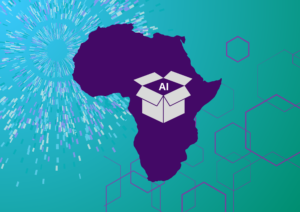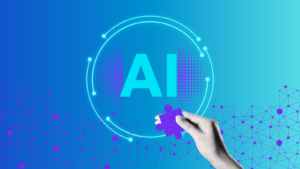Nashilongo Gervasius, Fellow, Datasphere Initiative
The various analogies that try to capture – even incompletely – the concept and value of data for modern society, including data as “the new gold”¹, have awakened the interest of African governments, and expedited digital transformation for local competitiveness.
However, digital transformation and the ability to access the benefits generated by the 4th Industrial Revolution are yet to be supported by comprehensive data strategies that go beyond adapting the same analogue processes to digital formats.
In this blog post, as part of my fellowship with the Datasphere Initiative, I review the current challenges and opportunities in Namibia, and build on the frameworks of the Datasphere and, specifically, Open Data, to unlock the value of data for all.
The Concept of Open Government Data
“Open Government” is not a new concept and practice – the Open Government Partnership, for example, composed of 78 countries, including various from Africa (but not yet Namibia), and 76 localities, was launched over 10 years ago.
Open Government Data (OGD) is a philosophy at the center of open government, with mature policies and standard models that promote transparency, accountability, and value creation by making government data available to all. At the core of the OGD philosophy are the principles of “Open Data”. Those are:
- Availability and Access: that people can get the data
- Re-use and Redistribution: that people can reuse and share the data
- Universal Participation: that anyone can use the data
OGD considers public institutions as large collectors and processors of data, that should make the data and datasets they create and collect available. It further encourages the access, use, and reuse of data and datasets for business creation and innovation in the private sector by generating economic value and creating jobs, improving the investment climate, and leveling the playing field (Skeptics Guide to OG).
More recently, this philosophy has gone further to address Open Data in other sectors besides government data. These include health (with the “Open Response = Open Recovery” series), environment, and data used by social platforms and algorithms (e.g. Transparency call for action).
The concept of Open Data communicates well with the concept of the Datasphere, understood as the “complex system encompassing all types of data and their dynamic interactions with human groups and norms”. Open Data is one of the many forms of data governance, yet it is one of the most comprehensive developed, regarding the roles of human groups and how data should be collected and treated.
The concept of the Datasphere is useful because it goes beyond Open Data, which was initially developed for government data. The Datasphere demands a holistic understanding of what other norms might also be needed (e.g., data protection and privacy).
African countries cannot afford to stay behind in developing a data strategy that truly unlocks the value of data for all as foreseen by the Open Government Data approach.
The case of Namibia
With a population of 2.5 million people, the contours of the data ecosystem in Namibia are hard to grasp. Both public and private institutions – such as banks, insurance, and others – are assumed to have large datasets under their management. Additionally, there is no national overarching data strategy, besides the limited e‐Governance Policy for the Public Service of Namibia. Namibia also lacks national personal data protection laws.
Without a national strategy and clarity of what data the public and private actors control and use, the value and potential of Namibia’s “data economy” is hard to determine.
Nevertheless, some indexes provide useful pointers. Namibia is a middle-income country ranked at the bottom of most relevant indexes regarding data:
- 109th of 130 economies on the 2021 Network Readiness Index (NRI),
- 90th of 110 countries in the 2022 Global Data Barometer, meaning Namibia has an overall score of 19, being far behind the highest-scoring countries (e.g., United States (68), Estonia (67) and France (66)),
- 130th of 187 economies on the 2020-2021 Open Data Inventory from Open Data watch (ODIN).
While the NRI covers the capability of an economy to benefit from the networked economy, including the data economy, the other two are directly focused on the state of the data ecosystem (GDB) as a whole and the state of statistical data in specific (ODIN).
ODIN, specifically, measures how complete a country’s statistical offerings are and whether its data meet international standards of openness. At 130th, Namibia has an overall score of 41. The overall score is a combination of data coverage (how much data is made available) subscore of 37 and a data openness (format and licensing of the datasets, the comprehensiveness, and accessibility of metadata, and what data download options exist) subscore of 44.
In Namibia, the few data that are digital are hard to access and manipulate. Access to government data often requires the payment of a fee, and data is mostly non-machine-readable (31% score in ODIN). National data is stored in distributed systems developed and provided by third parties via international procurement or via donation of services, creating high transaction costs for access and lack of interoperability.
But indexes are not enough if pressure for change is lacking.
Data Advocacy in Namibia
Highlighting Namibia in these indexes, including the local community in developing the indexes, and providing Open Data training have been core strategies of the international Open Data community and the Open Government Data (OGD) community. These initiatives have taken place to support the emergence of a vibrant community of Open Data advocates in the country.
In the last few years, this local community has expanded and advocated for a nationwide data strategy based on an Open Data agenda, by pointing to the core benefits of Open Data: transparency, public service improvement, efficiency, and public and private innovation.
These communities advocate for adopting the three core principles – Availability and access, Re-use and Redistribution, and Universal Participation – behind the definition of “Open Data” as central aspects of a national data strategy.
Opportunities and Next Steps
Two major processes that are currently ongoing in the country offer opportunities for the local community to advocate for a national data strategy supported by both the concept of Open Data and the Datasphere.
In 2021, Namibia embarked on a nationwide data collection exercise to benchmark the country’s science, technology and innovation system against the norms and standards of the Recommendation on Science and Scientific Researchers. Namibia is one of six pilot countries taking part in the project “Strengthening STI Systems for Sustainable Development in Africa”, an initiative funded by the Swedish International Development Agency (SIDA).
In the same year, the Namibian president appointed the Fourth Industrial Revolution Taskforce – an eight-member task force to assist the government in preparing for the Fourth Industrial Revolution (4IR) for a period of 12 months.
These two initiatives reinforce the need for a holistic nationwide data strategy that will enable Namibia’s population to access the benefits of the digital age. The data community in Namibia will be hard at work to ensure the country gets this right.
¹FA (2019), “Data Is The New Gold”, Forbes Africa, https://www.forbesafrica.com/technology/2019/07/18/data-is-the-new-gold/





